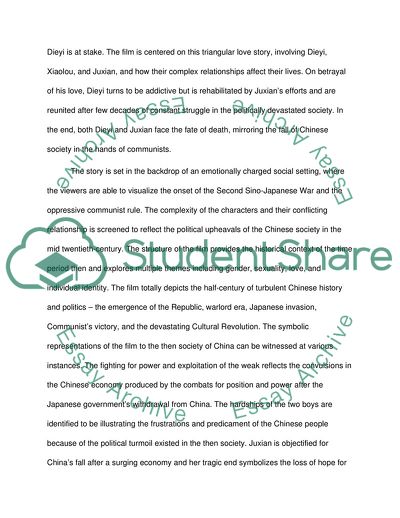Cite this document
(Farewell My Concubine Movie Review Example | Topics and Well Written Essays - 1500 words, n.d.)
Farewell My Concubine Movie Review Example | Topics and Well Written Essays - 1500 words. https://studentshare.org/gender-sexual-studies/1852927-essay
Farewell My Concubine Movie Review Example | Topics and Well Written Essays - 1500 words. https://studentshare.org/gender-sexual-studies/1852927-essay
(Farewell My Concubine Movie Review Example | Topics and Well Written Essays - 1500 Words)
Farewell My Concubine Movie Review Example | Topics and Well Written Essays - 1500 Words. https://studentshare.org/gender-sexual-studies/1852927-essay.
Farewell My Concubine Movie Review Example | Topics and Well Written Essays - 1500 Words. https://studentshare.org/gender-sexual-studies/1852927-essay.
“Farewell My Concubine Movie Review Example | Topics and Well Written Essays - 1500 Words”. https://studentshare.org/gender-sexual-studies/1852927-essay.


